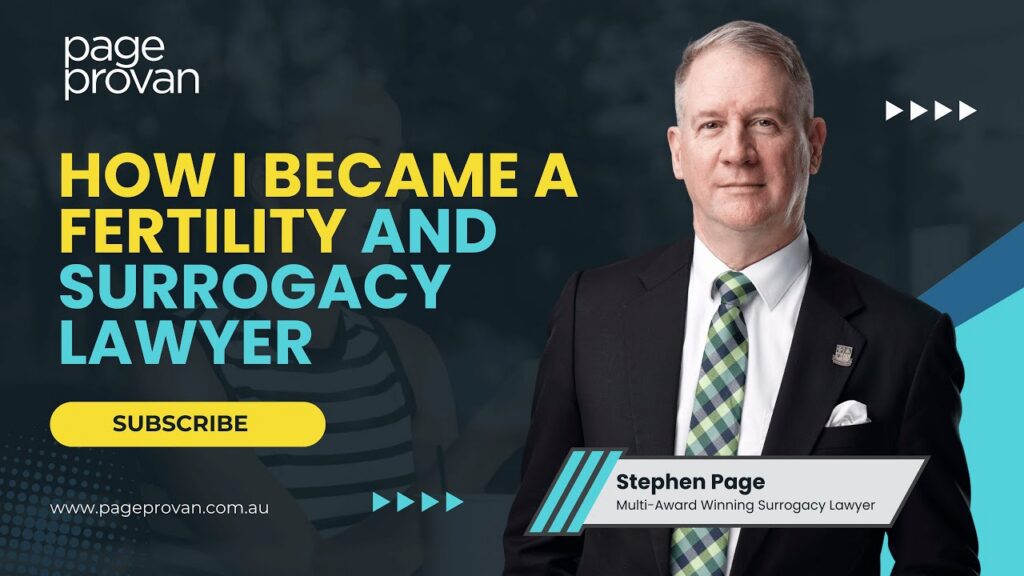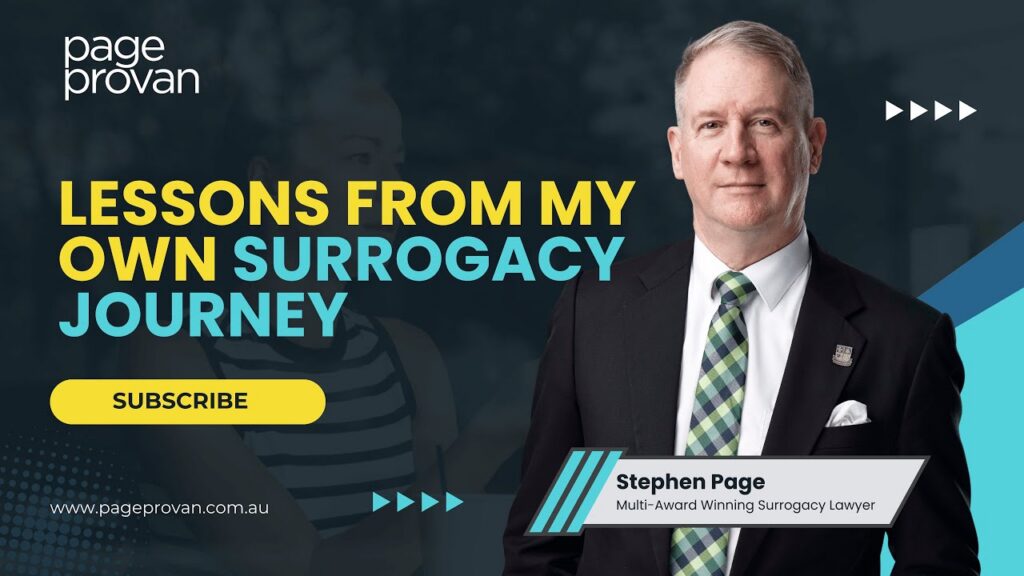Same Sex Couples & Adoption in Australia
In this video, Award-Winning surrogacy lawyer and Accredited Family Law Specialist, Stephen Page covers the essential legal steps for same-sex couples adopting in Australia.
Transcript
G’day, I’m Stephen Page from Page Provan Family and Fertility Lawyers, and I’m talking today about same-sex couples and adoption in Australia. Well, this is a case of the good, bad, and the ugly. The good is that no longer is there any discrimination under Australian law about being able to adopt based on your sexuality or your relationship status.
So if you live in Darwin or Hobart, or Adelaide, or Canberra, or Sydney, or Brisbane, or Perth, I think I’ve got everywhere, or anywhere in between, you won’t be discriminated against because you happen to be gay or or lesbian, or non-binary, or transgender, or intersex, or straight.
There’s just no discrimination in that space anymore. These changes came out gradually, but I think that the nail on the coffin was when the Australian public spoke so convincingly to say that there should be equal marriage laws.
How could you then say that gay and lesbian couples were entitled to marry but weren’t entitled to adopt? So that’s the good news. The bad news is there are no children available to adopt, or virtually no children available to adopt.
Every year, the Australian Institute of Health and Welfare puts out this summary of the number of children who have been adopted in Australia and says this is at historically low levels.
The numbers of children available to adopt now are just minuscule compared to 1970, and that was the era when we had a population of only 10 million as opposed to 27 now, and 10,000 children were being adopted.
You remember, that’s when the nuns and state authorities were removing children from their mothers, that terrible, terrible era. But now, there are no children. So that’s the bad.
The ugly is, well, you might think, okay, well, there are no children available in Australia, maybe we can adopt from overseas. Good luck with that. Most of the countries that Australia takes children from, wherever they’re available, they’re not available for same-sex couples.
They’re only available for heterosexual sexual couples. So if you look at Taiwan, Philippines, South Korea, for example, just they’re not available. One would think, therefore, that if you adopted in a country, that was a party with Australia to the 1993 Hague Adoption Convention, for example, the United States.
There’s a place where we can adopt, and we can have our adoption recognised here, stop before you start. Recently, I had to look at that very issue, and the bad news is, yes, the United States and Australia are both parties to the 1993 Hague Intercountry Adoption Convention, that’s the good news.
The really ugly news is that Australia says, well, hold your horses. We will only take children from a country, from the 14 countries that we have an agreement with, that we have a partnership with to take children from.
So in theory, you can do it in places like the United States, if you’re a gay couple or a lesbian couple. But in practise, there will be a whole series of roadblocks in Australia that will make it almost impossible to do.
Thank you.












